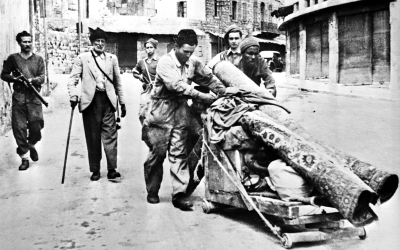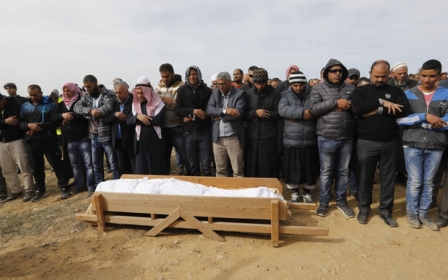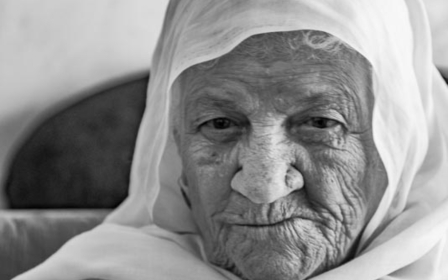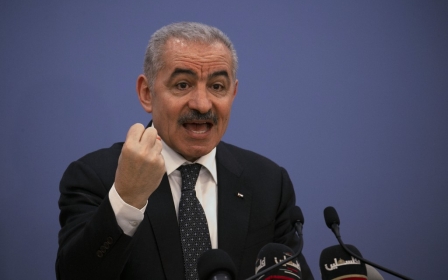Israel-UAE deal: Abu Dhabi-bound plane named after Israeli city sparks controversy
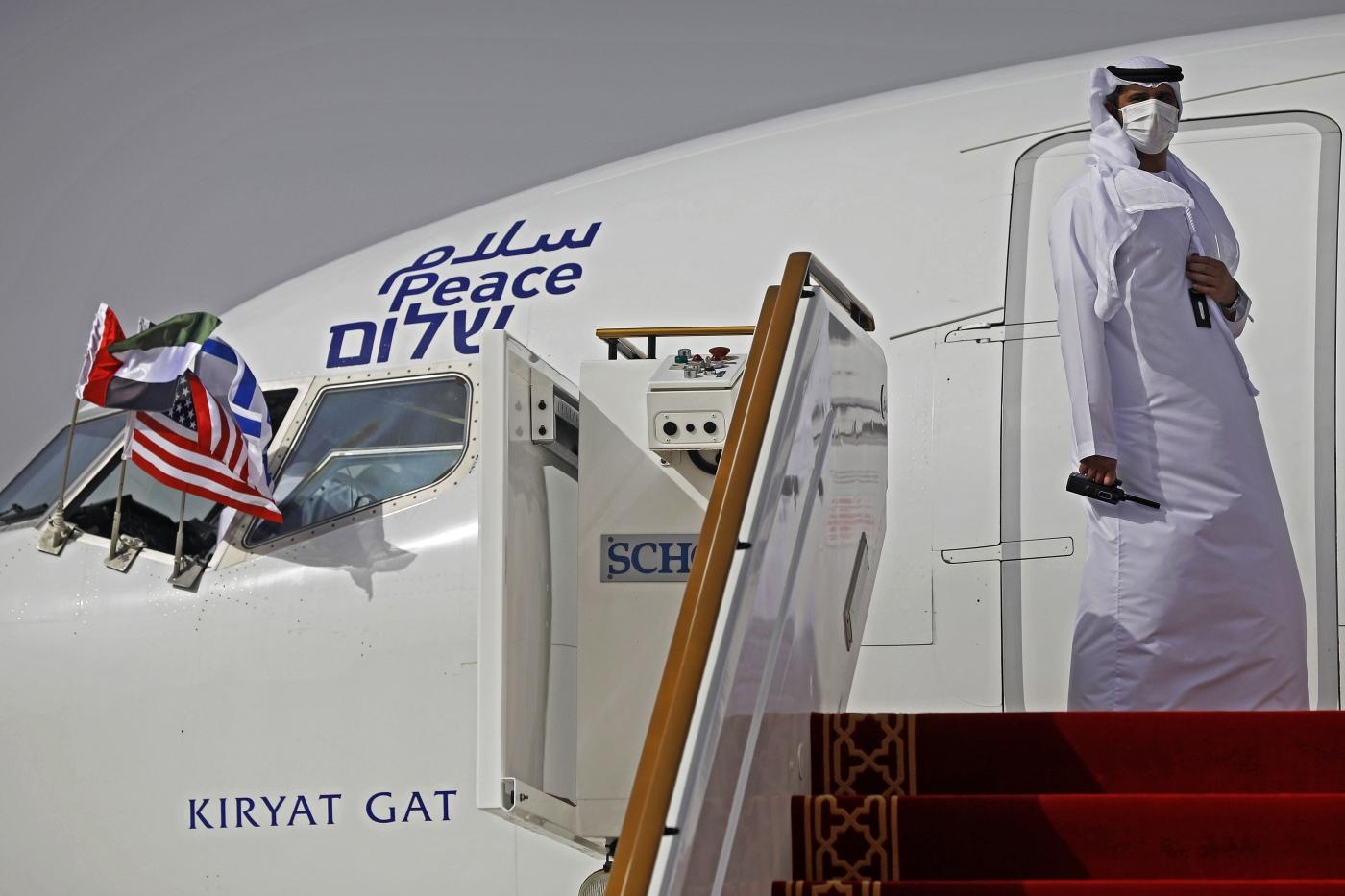
The first direct commercial flight between Israel and the United Arab Emirates (UAE), which took place on Monday, has been criticised for carrying a US-Israeli delegation seeking to finalise a normalisation accord between Tel Aviv and Abu Dhabi.
But the name of the plane, plastered on its fuselage below the cockpit, has also stoked controversy.
Kiryat Gat, the Israeli municipality after which the plane is named, was highlighted by some Palestinians who took to social media to discuss the history of the land upon which it was built.
The city, which lies almost 70km southwest of Jerusalem, was built in 1954 on the foundations of the Palestinian village of Iraq al-Manshiyya.
New MEE newsletter: Jerusalem Dispatch
Sign up to get the latest insights and analysis on Israel-Palestine, alongside Turkey Unpacked and other MEE newsletters
Iraq al-Manshiyya and nearby al-Faluja were among at least 418 Palestinian villages depopulated around the time of the establishment of the state of Israel in 1948 - referred to by Palestinians as the Nakba, or catastrophe - during which thousands of Palestinians were killed and hundreds of thousands of inhabitants were forced to flee, only to later be denied the right of return.
Iraq al-Manshiyya and al-Faluja also hold particular significance as the places where an armistice was agreed upon between Israel and Egypt on 24 February 1949.
Egyptian forces had taken position in the area in May 1948, and although later Israeli counter-offensives broke up their front and laid siege to the two villages - the 4,000 Egyptian troops deployed there (including a young officer named Gamal Abdel Nasser) held out until the armistice was concluded.
However, the agreement was to be broken shortly thereafter by Israel after a well-orchestrated campaign of psychological warfare and violence was exacted against the villagers.
In December 1972, Kiryat Gat’s municipal status was upgraded and it became Israel’s 31st city. It continued to expand and in 1992 spread to include the land formerly belonging to al-Faluja.
The history behind the name on a plane carrying Israeli officials to normalise diplomatic relations with an Arab state felt for some social media users like adding insult to injury.
Many Palestinians consider all of historic Palestine to be occupied - but other social media users took issue with Kiryat Gat being described by some as a settlement, pointing out that it lies well within lands recognised by the majority of the international community as constituting the state of Israel.
Kiryat Gat is located in Israel's Southern District, which covers most of the Negev desert. Around 240,000 Palestinian citizens of Israel live in villages and towns in the Negev - a large number of whom are still threatened with forcible displacement today.
Some 76,000 of them are Palestinian Bedouins who live in what are known as "unrecognised villages". To this day, these 45 villages are denied any infrastructure or support from the Israeli government, lack transportation and have no roads or schools.
Residents say the policies are simply attempts to further internally displace them, despite Bedouins having lived on or near these lands prior to 1948.
In the name of "developing" the area, villages in the Negev such as Khirbet al-Watan or Umm al-Hiran regularly face Israeli government policies of house demolitions, evacuation orders and police raids, sometimes with deadly consequences.
Representing 20 percent of the population in Israel, Palestinian citizens of Israel have long denounced ostensibly social initiatives by Israeli authorities, which they argue are covers for dispossessing Palestinians and erasing Palestinian heritage.
Middle East Eye delivers independent and unrivalled coverage and analysis of the Middle East, North Africa and beyond. To learn more about republishing this content and the associated fees, please fill out this form. More about MEE can be found here.


